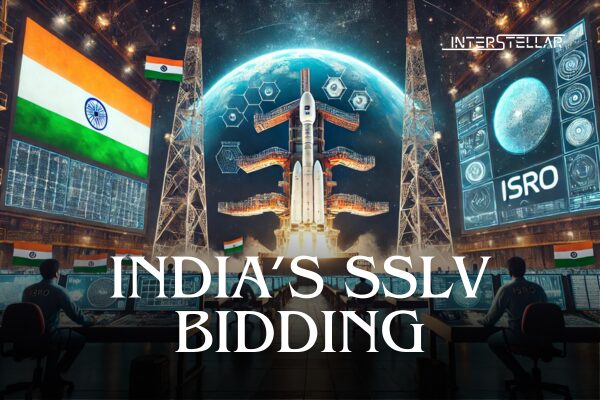Adani Group Competes to Take Over India’s Small Satellite Launch Vehicle
Indian conglomerate Adani Group is among three finalists bidding for the private production of India’s Small Satellite Launch Vehicle (SSLV), alongside two government-linked companies, according to three sources familiar with the matter.
India’s Push for Commercial Space Expansion
The SSLV, developed by the Indian Space Research Organisation (ISRO), is a cost-effective rocket designed to launch satellites weighing up to 500 kg (1,100 pounds) into low-Earth orbit (LEO). This segment of the market is highly sought after, given the increasing demand for small satellite deployments.
Following the SSLV’s first successful launch in 2023, the Indian government moved to privatise its production and technology transfer. This effort aligns with India’s broader strategy to expand its commercial space sector, aiming to compete with global players such as SpaceX. The government sees this as a key step in strengthening India’s presence in the booming global satellite launch market.
“LEO is the name of the game right now, so the potential winner has the opportunity to really tap into a rapidly growing market,” said Damodaran Raman, a director at Deloitte specialising in space technology.
Bidding Process and Key Finalists
Initially, around 20 companies expressed interest in the SSLV project, marking the first privatisation of its kind under Prime Minister Narendra Modi’s initiative to open India’s space industry.
The three finalist consortiums include:
- Alpha Design Technologies, partially owned by Adani Defence Systems and Technologies
- Bharat Dynamics Limited (BDL), a state-backed enterprise
- Hindustan Aeronautics Limited (HAL), another government-linked firm
Reuters could not verify the exact structure of each bidding group. The companies did not respond to requests for comment, and sources remained anonymous due to the confidentiality of the bidding process.
Financial and Strategic Considerations
The winning company is expected to pay ISRO approximately 3 billion rupees ($30 million) for SSLV production rights. This fee covers access to design knowledge, manufacturing processes, quality-assurance training, and up to 24 months of technical support or two successful launches.
Beyond financial commitments, bidders must showcase their ability to manufacture, maintain, and market the SSLV. A second source noted that limited launch slots with major players like SpaceX present an opportunity for new entrants. This could position the SSLV as a preferred launch option for South Asia and emerging space markets.
India’s Space Economy Growth Plans
The global satellite launch market is expected to expand from $5.6 billion in 2025 to $113 billion by 2030, with LEO missions leading the sector, according to research firm Mordor Intelligence.
Currently, India holds only a 2% share of the global space economy. However, the Modi government aims to grow that share fivefold to $44 billion by the decade’s end. To qualify for the SSLV contract, bidding companies needed to be profitable, with the lead firm possessing at least five years of manufacturing experience and an annual revenue of at least 4 billion rupees ($50 million), per India’s space regulator.
This privatisation marks a significant step in India’s efforts to establish itself as a leading player in the commercial space industry.
With inputs from Reuters


